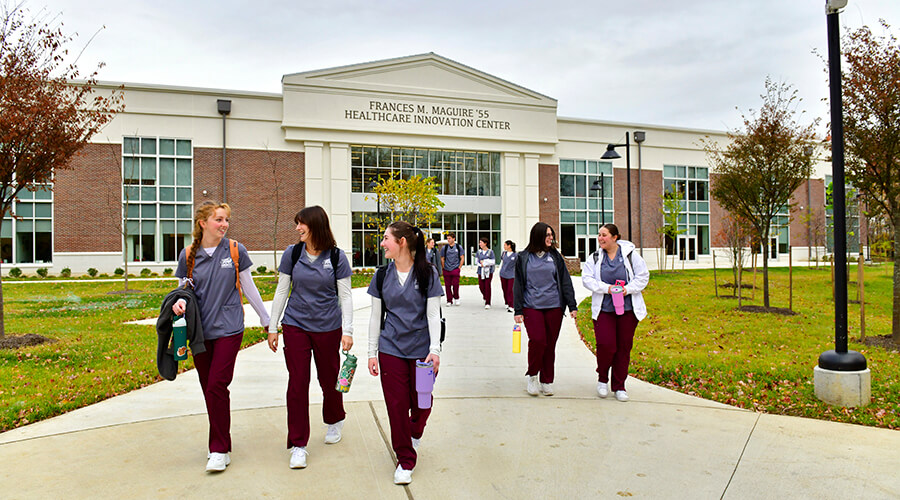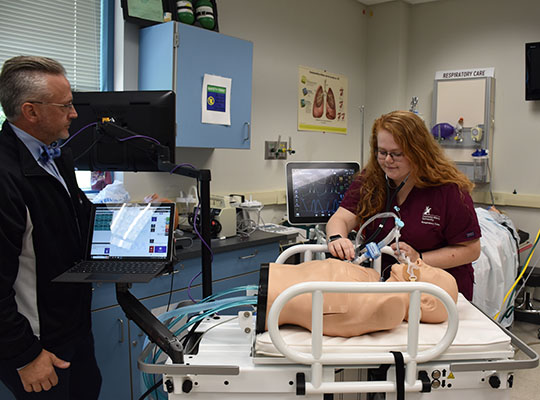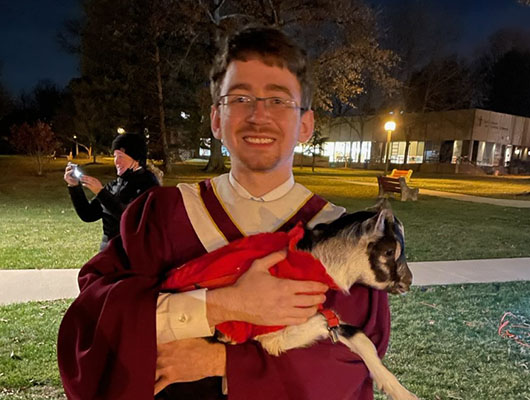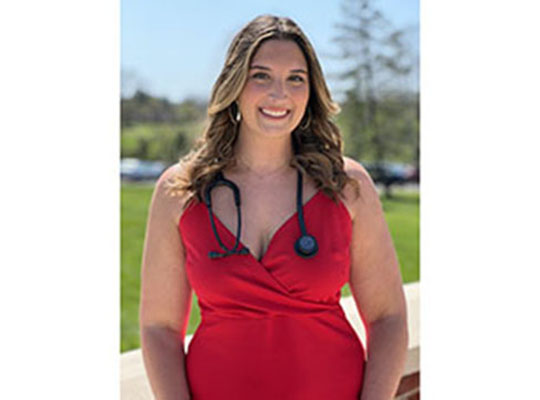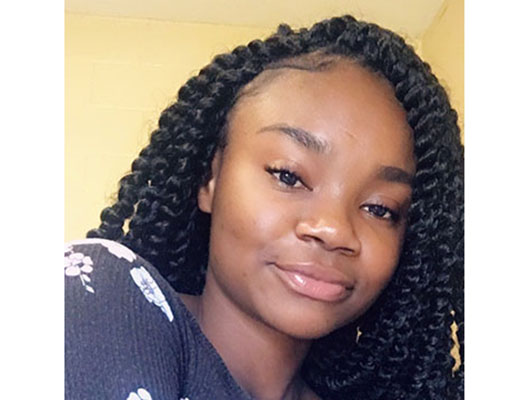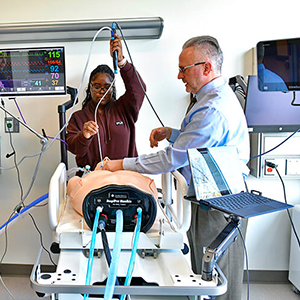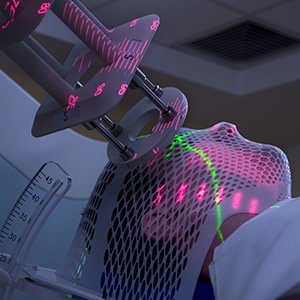Respiratory Therapist Program (BHS)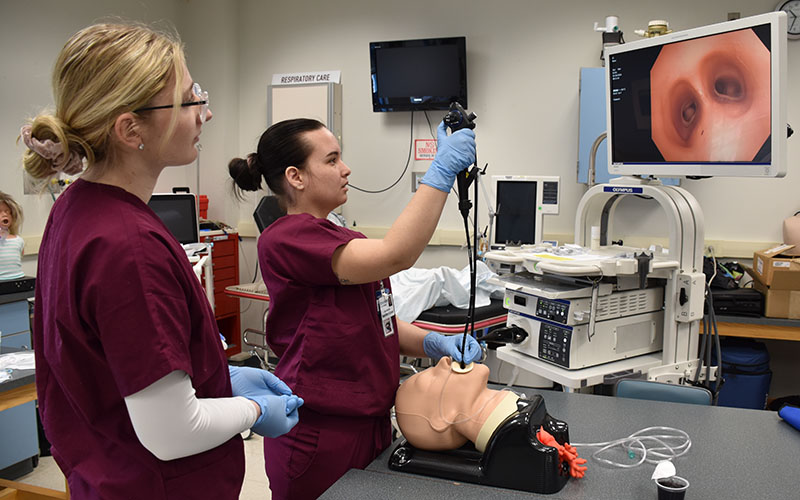
Earn Your Bachelor’s Degree in Respiratory Care
Gwynedd Mercy University’s bachelor of health science (BHS) degree in respiratory care offers a clear path to a career as a respiratory therapist. First-year students can begin their college journey in this BHS program; it also serves as a degree completion program for AS degree graduates and RRTs.
The program is part of the Frances M. Maguire College of Nursing and Health Professions, distinguished as an innovative and leading program with a long and celebrated history of preparing competent, caring and compassionate respiratory therapists. For years, GMercyU has been known as one of the leading schools for respiratory therapy.
Here, you can acquire the value of a four-year degree from a program that’s accredited by the Middle States Association of Schools and University Commission on Higher Education.
-
100%
final pass rate on the Certified Respiratory Therapist exam (administered by the National Board for Respiratory Care), since 2016
-
97%
clinical pass rate on the Registered Respiratory Therapist (RRT) exam, since 2016
-
100%
of Respiratory Care's Class of 2025 secured employment before graduation
-
$86,250
median annual salary for respiratory therapists in the Philadelphia area in 2024
(Bureau of Labor Statistics) -
100%
of full-time undergraduate GMercyU students receive some form of financial aid
An Award-Winning Program
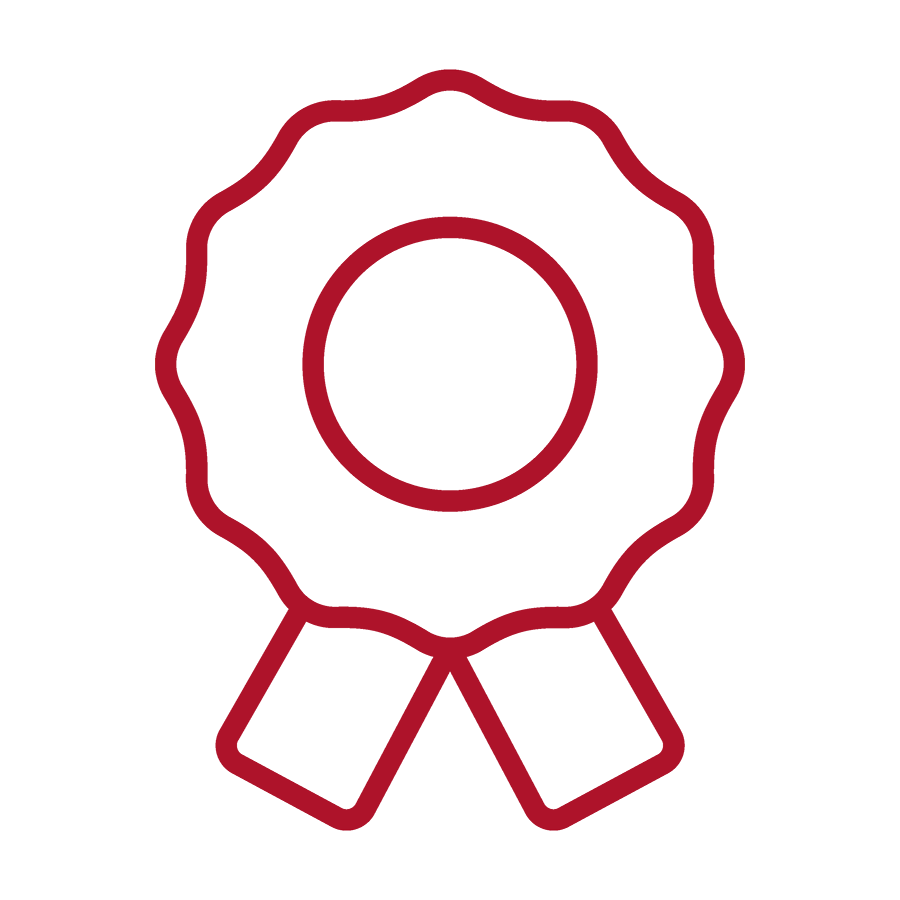
- CoARC's Distinguished RRT Credentialing Success Award
for a 90+% pass rate over the 3-year cycle
(2016-2022 and 2024, 2025)
- American Association for Respiratory Care’s (AARC) APEX Award
one of just 11 schools out of 400+ programs nationwide to receive it
(2023, 2024) - CoARC's President’s Award for Excellence in Credentialing Success
only school in the Philadelphia area and just one of 18 schools of 400+ nationwide to receive it
(2023)
 The Entry to Practice Respiratory Care Program at Gwynedd Mercy University, CoARC Program #200274, Bachelor of Health Science (BHS) Degree, at Gwynedd Valley, Pennsylvania is accredited by the Commission on Accreditation for Respiratory Care (www.coarc.com). CoARC accredits respiratory therapy education programs in the United States. To achieve this end, it utilizes an ‘outcomes based’ process. Programmatic outcomes are performance indicators that reflect the extent to which the educational goals of the program are achieved and by which program effectiveness is documented. For detailed data about each of our programs, please go to the Programmatic Outcomes Data page, then click the first link.
The Entry to Practice Respiratory Care Program at Gwynedd Mercy University, CoARC Program #200274, Bachelor of Health Science (BHS) Degree, at Gwynedd Valley, Pennsylvania is accredited by the Commission on Accreditation for Respiratory Care (www.coarc.com). CoARC accredits respiratory therapy education programs in the United States. To achieve this end, it utilizes an ‘outcomes based’ process. Programmatic outcomes are performance indicators that reflect the extent to which the educational goals of the program are achieved and by which program effectiveness is documented. For detailed data about each of our programs, please go to the Programmatic Outcomes Data page, then click the first link.
Gwynedd Mercy University is proud to offer educational opportunities unrivaled to other Bachelor of Health Science in Respiratory Care programs in PA. *To register a complaint, please contact: Commission on Accreditation for Respiratory Care (CoARC) https://coarc.com/students/complaint-process/
Program Details
Here, you'll earn the highest level of professional preparation within the field of respiratory care. All graduates of our bachelor’s degree program are:
- Certified Respiratory Therapist (CRT), which is the entry-level credential
- Registered Respiratory Therapists (RRT), which is the highest level of credential
Our respiratory therapy program curriculum will take you beyond entry-level capabilities, and teach you advanced-level respiratory care skills. Your clinical rotations will expose you to university teaching hospitals, pediatric and neonatal centers, community hospitals and alternate care sites.
Choose GMercyU's Bachelor of Health Science in Respiratory Care to:
- Progress in a career ladder approach (a 3+1 model, with the first 3 years representing the Associate Degree and the final year being a degree completion culminating in the Bachelor of Health Science Degree)
- Gain hands-on experience through GMercyU’s 21 regional health care affiliations
- Get a head start on your career with full employment eligibility after year three
- Participate in a fulfilling and exciting learning experience with the personal attention you need
- Attend courses taught by our experienced faculty who are published and present at state, national and international conferences and conventions
- Experience GMercyU’s state-of-the-art Respiratory Care Laboratory with cutting-edge technology and a comprehensive array of equipment, models, mannequins, and simulators — including a new state-of-the-art ASL-5000 lung simulator, capable of replicating a wide range of lung conditions for patients of all ages
As a graduate with a bachelor of health science in respiratory care, you’ll have first-hand experience, and be prepared to:
- Use state-of-the-art technology to diagnose and competently treat patients with cardiopulmonary disorders
- Administer oxygen therapy, deliver inhaled medications, and initiate and maintain life support equipment, such as mechanical ventilators, among other responsibilities
- Work in large academic medical centers, community hospitals, skilled nursing facilities, long term care, and even the home care setting
- Provide care for patients of all ages (from newborns to children, to adults and the elderly)
- Enter entry-level leadership positions in education or management/ supervision
Please note: Students enrolling in this program must have the ability to obtain a U.S. background check and other clearances for placement in a U.S. clinical/school setting. U.S. citizenship or permanent residency is also a requirement for licensure within certain academic programs. International students and students who are under DACA status or are undocumented should carefully review the licensure requirements in their state before enrolling in a degree program that leads to licensure. Additional information can be found on the Commonwealth of Pennsylvania's website.
Licensure: This program was designed to meet the licensure requirements of the Commonwealth of Pennsylvania. If you reside in a different state, you should carefully review your home state’s licensure requirements prior to enrolling in this program. For more information, please visit our Program Licensure Requirement page.
In addition to general education coursework, you will complete the following courses:
Respiratory Care Courses: 63 Credits
| RC 200 | Introduction to AH - 2 Credits |
| RE 210 | Medical Terminology – 1 Credit |
| RC 230 | Respiratory Theory I – 4 Credits |
| RE 231 | Respiratory Theory II – 3 Credits |
| RC 232 | Respiratory Theory III – 3 Credits |
| RC 233 | Respiratory & Cardiac Physiology – 3 Credits |
| RC 234 | Respiratory Pharmacology – 3 Credits |
| RC 240 | Respiratory Procedures I – 1 Credit |
| RC 241 | Respiratory Procedures II – 1 Credit |
| RC 242 | Respiratory Procedures III – 1 Credit |
| RC 250 | Clinical Respiratory Care I – 3 Credits |
| RC 251 | Clinical Respiratory Care II – 3 Credits |
| RC 330 | Advanced Respiratory Theory I – 3 Credits |
| RC 331 | Advanced Respiratory Theory II – 3 Credits |
| RC 332 | Advanced Respiratory Theory III – 3 Credits |
| RC 333 | Respiratory Pathophysiology – 3 Credits |
| RC 334 | RC Research – Capstone – 3 Credits |
| RC 335 | Respiratory Seminar – Capstone – 3 Credits |
| RC 340 | Advanced Respiratory Procedures I – 1 Credit |
| RC 341 | Advanced Respiratory Procedures II – 1 Credit |
| RC 342 | Advanced Respiratory Procedures III – 1 Credit |
| RC 350 | Advanced Clinical Respiratory I – 2 Credits |
| RC 351 | Advanced Clinical Respiratory II – 3 Credits |
| HA/HS | Elective (3) |
Credit Requirement
A minimum of 127 credits is required for the bachelor’s degree in respiratory care. See the undergraduate catalog for more information and course descriptions.
Undergraduate Minors
Increase the value of your associates in respiratory therapy degree by adding an undergraduate minor that best meets your personal and professional goals.
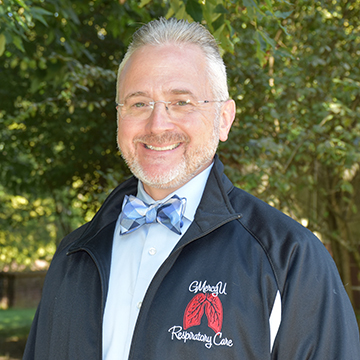 William R. (Randy) Solly MS, RRT, RPFT, AE-C
William R. (Randy) Solly MS, RRT, RPFT, AE-C
Position: Assistant Professor and Program Director
Did You Know? Solly has presented at the local, state, and national levels on topics such as pulmonary function testing, updated spirometry standards, interventional bronchoscopy, disaster medicine, and health care provider burnout.
Read bio
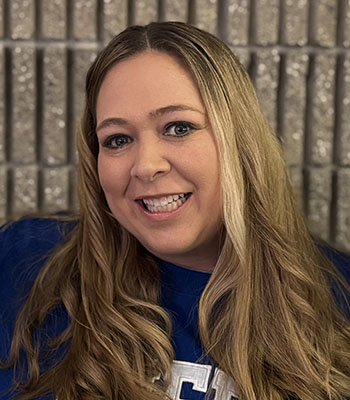
Rachel Flannelly, BHS, RRT, RRT-NPS
Position: Instructor
Did You Know? Flannelly is a proud 2020 GMercyU graduate who works at the Children's Hospital of Philadelphia and Jefferson Abington Hospital.
Read bio
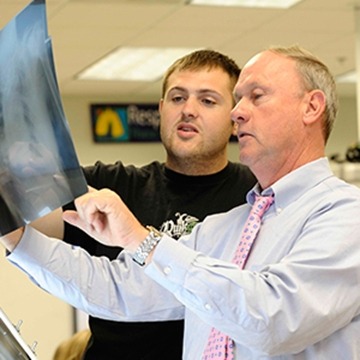 William Galvin, MSEd, RRT, CPFT, AE-C, FAARC
William Galvin, MSEd, RRT, CPFT, AE-C, FAARC
Position: Professor Emeritus
Did You Know? Galvin authored and edited the 60-chapter comprehensive textbook, Respiratory Care: Principles and Practice, which has been adopted and used by RC students nationally. He is the recipient of numerous honors and awards.
Read bio
 Barbara Schuster, MSEd, RRT
Barbara Schuster, MSEd, RRT
Position: Assistant Professor
Did You Know? Schuster's specialties include Acute Care, Advance Cardiac Life Support, Invasive Cardiac Monitoring, Cardiopulmonary Anatomy & Physiology, and Neonatal & Pediatrics.
Read bio
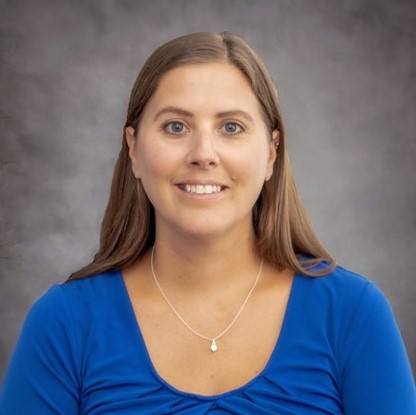 Melissa Thornborough, MEd, RRT, RRT-ACCS, AE-C
Melissa Thornborough, MEd, RRT, RRT-ACCS, AE-C
Position: Assistant Professor and the Director of Clinical Education
Did You Know? She has worked at Jefferson Abington Hospital as a staff therapist for most of her career -- the last nine years, serving as supervisor. She is still currently on staff on an as-needed basis.
Read bio
Funding and Career Opportunities
Employers want GMercyU Respiratory Care students! Through our partnerships, you could receive:
- Employment at Penn Highlands Healthcare, Penn Medicine, or St. Luke's University Health Network
- Tuition funding or loan repayment opportunities (up to $40,000)
From 2020-2025, all GMercyU respiratory care graduates secured immediate employment in top area institutions.
Juniors in our program continue to be recruited, some with signing bonuses and other compelling incentives.
—Randy Solly, MS, RRT, RPFT, AE-C, Professor of Practice and Program Coordinator of the Respiratory Care Program
Real-World Opportunities
Here are some of the places where GMercyU’s Respiratory Care majors have gained practical, hands-on experience locally. Some students choose to go to other regions of the country to gain hands-on experience and training.
- Abington Memorial Hospital
- Aria Health Systems (Frankford Hospitals)
- Cancer Treatment Centers of America
- Chester County Hospital
- The Children’s Hospital of Philadelphia
- Doylestown Hospital
- Einstein Montgomery Hospital
- Fox Chase Cancer Center
- Grandview Hospital
- HCR Manor Care
- The Hospital of the University of Pennsylvania
- Jeanes Hospital
- Lankenau Hospital
- Lehigh Valley Hospital Center
- Lehigh Valley Medical Center and Health Care System
- Mercy Hospital of Philadelphia
- Montgomery Einstein Hospital
- Mercy Suburban Hospital
- St. Luke's Health Care System (specifically Upper Bucks)
-
Temple University Health System, including:
-
Fox Chase Cancer Center
- Jeanne's Hospital
- Temple University Hospital
-
- Thomas Jefferson University Medical Center
Demand for Respiratory Therapists
During the pandemic, respiratory therapists cared for an overwhelming number of COVID-19 patients who required advanced and life-sustaining ventilator care. Yet even before the pandemic, there was an urgent need for more respiratory therapists due to an aging population and an increase in chronic diseases such as asthma and COPD.
In fact, the Bureau of Labor Statistics reports a 13% increased demand for respiratory therapists through 2033 – more than three times the growth of all occupations.
U.S. News Best Healthcare Job Ranking
Respiratory care has been recognized as a career with a great return on investment. In 2025, the profession ranks #9 on U.S. News’ list of “Best Healthcare Jobs” and #25 on their “100 Best Jobs” list.
Average Salary for Respiratory Therapists
According to the Bureau of Labor Statistics, the median annual wage for respiratory therapists was $80,450 in May 2024, with the top 10% earning more than $108,820. In the Philadelphia area, respiratory therapists averaged $86,250 per year.
Possible Careers for Respiratory Care Majors
- Clinician
- Diagnostician
- Adult critical care specialist
- Pulmonary function technologist
- Sleep technologist
- Asthma educator
- Neonatal/ pediatric specialist
- Patient advocate
- Tobacco cessation counselor
- Pulmonary rehabilitation specialist
- Clinical preceptor
Areas of Specialization
- Medical/ surgical care
- Adult Critical Care
- Neonatology
- Pediatrics
- Pulmonary diagnostics
Additional education and training may be required for some of these positions.
As a respiratory therapist, you’ll use a combination of physical examination and sophisticated technology to diagnose and treat patients with cardiopulmonary disorders. You will learn to administer oxygen therapy, deliver inhaled medications, and initiate and monitor patients on life support, such as mechanical ventilators.
This fulfilling work can take you to a variety of settings, from hospitals to home care, and provides the opportunity to work with patients of all ages, from neonatal to elderly.
More About Respiratory Care
During the pandemic, respiratory therapists cared for an overwhelming number of COVID-19 patients who've required advanced and life-sustaining ventilator care.
Yet even before COVID, there was an urgent need for more respiratory therapists due to an aging population and an increase in chronic diseases such as asthma and COPD. COPD is one of the leading causes of death in the U.S., and the number of diagnosed asthmatics continues to rise.
Earning your bachelor’s degree in respiratory care will qualify you to specialize and focus on the lungs and the heart, and to secure specialty credentials in areas such as adult critical care, neonatal/ pediatrics, pulmonary function testing, and asthma education. Additionally, you will be prepared to work in pulmonary rehabilitation, sleep medicine, and home care.
You may also pursue leadership roles as a respiratory care supervisor, department director, clinical preceptor, classroom educator, disease manager, and/or in patient advocacy.
Respiratory therapy is the study of issues affecting patients' hearts and lungs. Respiratory therapists evaluate, diagnose and treat heart and lung issues, including chronic diseases and emergencies. They may work in hospitals, long-term care facilities or in patients' home.
Respiratory therapists diagnose and treat lung and heart problems in patients. They work as part of the medical team that administers medications, manages airways, and conducts rehabilitation activities. Here are some other job responsibilities:
- Manage ventilation machines
- Assess lung capacity
- Perform diagnostic tests
- Develop and implement treatment plans
- Consult with physicians
- Monitor and record progress of treatment plans
- Educate patients about diseases and their treatments
